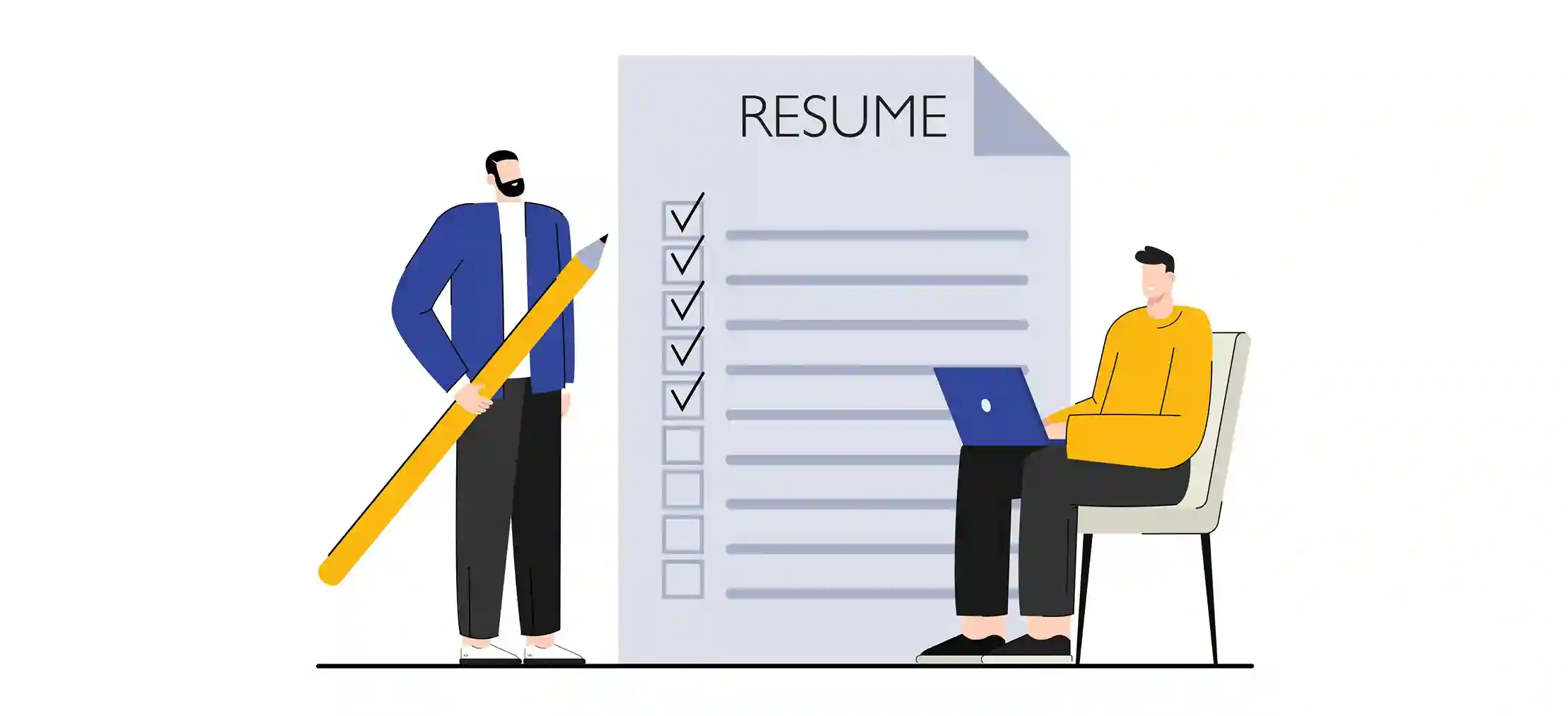 Neena Raj
May 29, 2025
Neena Raj
May 29, 2025

Including AI skills on your resume is essential in today’s job market, where 56% of employers report difficulty finding candidates with AI expertise, according to a 2024 LinkedIn survey. Showcasing your AI capabilities can increase your chances of landing interviews by up to 40%. To make your resume stand out, it’s crucial to not only list AI skills but also demonstrate how you’ve applied them to achieve measurable results. Whether you work in finance, marketing, HR, or tech, employers in sectors like oil & gas, healthcare, and education are increasingly prioritizing candidates who can harness AI to drive efficiency and innovation.
If you’re looking to make your resume stand out in a competitive job market, especially with the growing demand for AI skills, these practical tips will help you present your experience in a clear, relevant, and impactful way.
Let’s break down each of these points to help you showcase your AI skills more effectively on your resume.
Your resume summary is often the first thing recruiters read, so make it count. It should highlight your AI skills and show how you’ve used them to add value. Don’t be vague or generic; be specific about the tools, technologies, and outcomes. A well-crafted summary sets the tone and immediately signals your suitability for roles involving AI.
Tip: Use metrics or percentages to back up your statements.
Example: Experienced HR professional with 4 years of hands-on experience using AI tools like HireVue, ChatGPT, and Zoho Recruit to improve hiring efficiency and employee engagement. Successfully reduced hiring time by 30% and enhanced candidate experience, resulting in a 20% boost in satisfaction scores.
This summary tells recruiters exactly what you do and why you’re a strong candidate.
Having a clear, dedicated section for your AI and technical skills improves your resume’s readability and helps applicant tracking systems (ATS) identify you as a good match. Since many companies use these systems to filter candidates, including relevant AI keywords is crucial.
List your AI-related skills separately from general skills. Include programming languages, AI frameworks, data visualization tools, and specific AI applications you’ve worked with. If you have beginner-level skills, don’t hesitate to include tools like ChatGPT or Excel AI add-ons, which are highly valued in non-technical roles.
Tip: Organize the skills logically, grouping similar tools or concepts.
For further understanding, read about the Top Artificial Intelligence Applications currently shaping industries.
Example:
AI & Technical Skills:
This structure makes it easy for recruiters to assess your AI capabilities.
Listing AI skills is necessary but not sufficient. Hiring managers want proof that you’ve applied these skills effectively to achieve real business results. Use your experience section to highlight projects or tasks where AI made a measurable impact.
Focus on action-oriented language. Describe what you did, how you did it, and the outcome. Ideally backed by numbers such as time saved, accuracy improved, or revenue increased. This approach demonstrates not just knowledge but competence.
Example: Digital Marketing Executive – Emirates NBD
Led a campaign optimization project using ChatGPT to generate targeted ad copy and Jasper AI for content variations. By combining AI-driven A/B testing insights and automation, improved engagement rates by 28% and reduced campaign turnaround time by nearly 40%.
Including specific outcomes gives recruiters confidence in your AI abilities and impact.
This blog on How To Utilize AI To Increase Employee Productivity provides excellent examples of AI’s workplace impact.
Certifications show you’ve invested time in learning AI skills and add credibility to your resume. The UAE is witnessing a surge in professionals obtaining AI-related credentials to meet increasing demand.
Certifications from recognized platforms such as Microsoft Azure AI Fundamentals, Google Cloud AI, IBM AI Engineering, and Coursera’s Machine Learning course by Andrew Ng are highly respected. Even LinkedIn Learning courses on Excel AI or Power BI AI add-ons can strengthen your profile.
Tip: List certifications in a separate section with dates and issuing organizations. If you’re a beginner, placing them near the top can offset limited work experience.
For further guidance on gaining AI skills, check out this blog: How to Build a Career in Artificial Intelligence?
Not every job requires deep technical AI skills. It’s important to adjust how you present your AI knowledge based on the role.
Technical Example: Developed and deployed a machine learning model in TensorFlow, improving equipment failure prediction accuracy by 90%.
Non-Technical Example: Used Excel AI add-ons and Power BI to automate financial forecasting, reducing manual report preparation time by 15 hours weekly.
This ensures your resume matches the expectations of the hiring manager.
Explore how AI is Transforming the Media Industry to understand its impact beyond tech jobs.
Applicant tracking systems and recruiters scan for keywords relevant to AI. Using AI terms naturally within your resume helps it rank higher during automated screenings and appeals to human readers.
Avoid stuffing keywords without context. Instead, integrate them meaningfully in summaries, skills, job descriptions, and certifications.
Examples of keywords to use: Artificial Intelligence, Machine Learning, ChatGPT, Predictive Modeling, Robotic Process Automation, AI in Recruitment, AI-Enhanced Financial Forecasting
Check out Top AI Software for Productivity And Efficiency to see popular tools worth mentioning.
It’s tempting to exaggerate skills, but honesty is crucial. If you’re new to AI, highlight projects, coursework, or tools you’ve experimented with, even if at a beginner level. Recruiters appreciate candidates who show a willingness to learn and can grow. Mention relevant projects, internships, or certifications to back up your claimed skills.
Example for beginners: Completed a project automating routine email drafts using ChatGPT, improving team productivity and communication speed.
This shows initiative and practical experience without overstatement.
You might also like this blog on How to Use AI to Boost Your Job Search to get more visibility.
Understanding the local context gives your resume an edge. Abu Dhabi’s industries are adopting AI in ways that fit their unique challenges.
Align your AI skills and examples with these trends to show relevance to Abu Dhabi’s market.
Explore how AI Will Transform The IT Industry and AI in Creative Jobs is reshaping the workforce across domains.
AI projects demand adaptability, problem-solving, and the ability to collaborate across teams. These soft skills are often what differentiate good candidates. Mention your ability to learn new AI tools quickly, work in multidisciplinary teams, and solve complex problems creatively.
Example: Quick learner of emerging AI technologies with a collaborative mindset, experienced in working with cross-functional teams to implement AI solutions that improve operational efficiency.
Related read: Why Upskill in the Age of Artificial Intelligence to stay competitive in dynamic job markets.
Consider an Artificial Intelligence Course to Stay Ahead
As AI continues to reshape industries and redefine job roles, having a solid grasp of how to use it effectively is becoming essential. Whether you're in marketing, finance, healthcare, or engineering, understanding how to apply AI tools can set you apart in a crowded job market. Taking an artificial intelligence course isn’t just about learning a new tool, it’s about future-proofing your career and staying relevant in an increasingly tech-driven world. If you’re serious about growing in your field, now is the time to build those AI skills that employers are actively looking for.